Understanding Quantities Numbers Worksheets for Ages 3-8
6 filtered results
-
From - To
Explore our engaging "Understanding Quantities Numbers Worksheets" designed specifically for children aged 3-8. These interactive resources help young learners grasp essential math concepts by associating numbers with quantities through fun and colorful activities. Our worksheets promote hands-on learning, enabling kids to count, compare, and identify different amounts in a playful context. Perfect for homeschooling or complementing classroom activities, these worksheets encourage children to build a strong mathematical foundation while developing critical thinking skills. With a variety of exercises tailored to differing skill levels, your child will gain confidence in their understanding of numbers and quantities. Start their learning journey today!
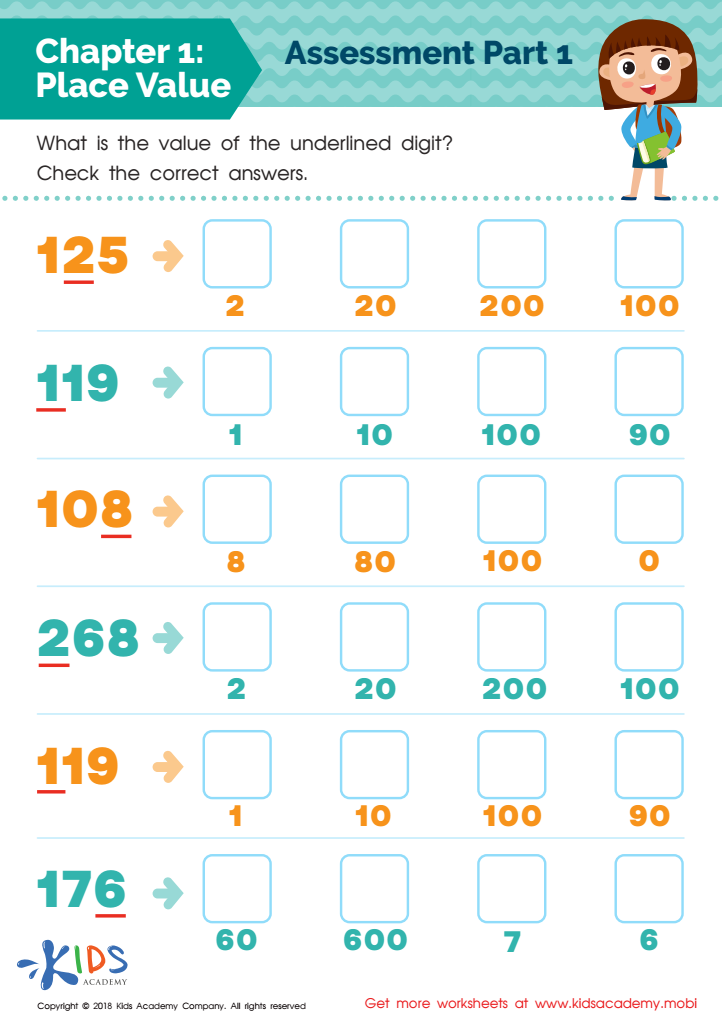

Place Value: Chapter 1 Worksheet
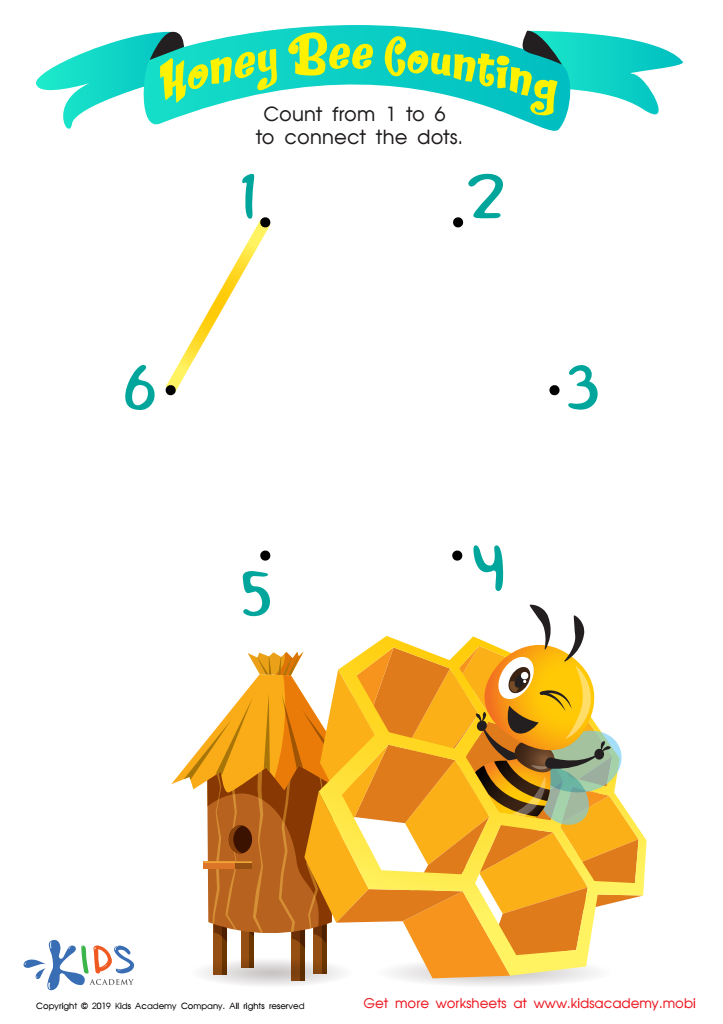

Honey Bee Counting Worksheet
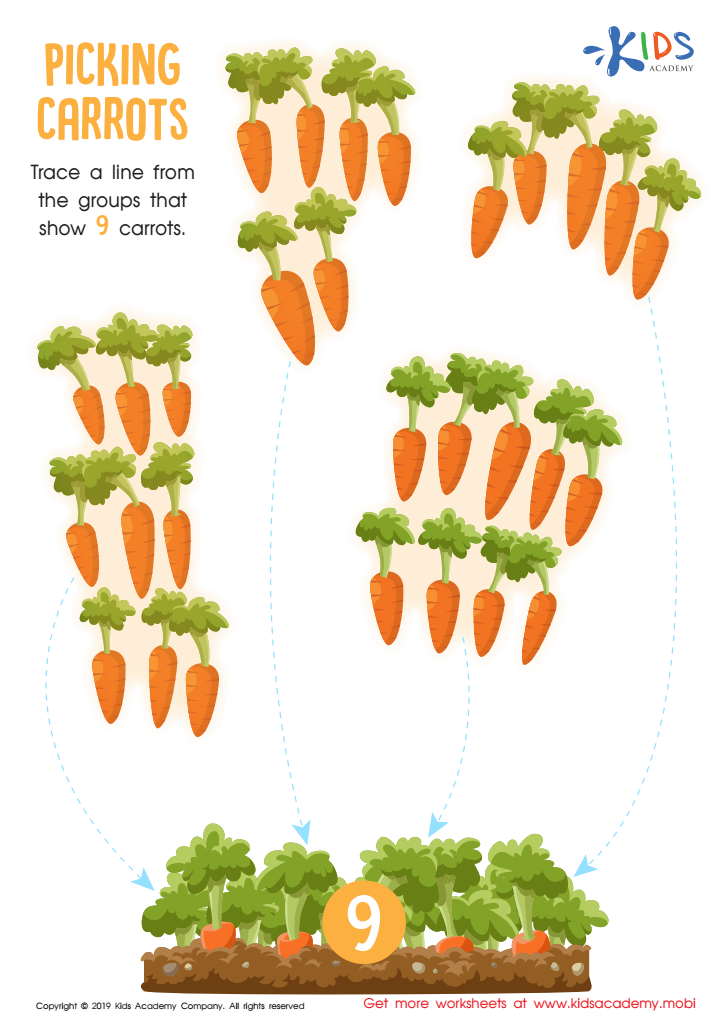

Picking Carrots Worksheet
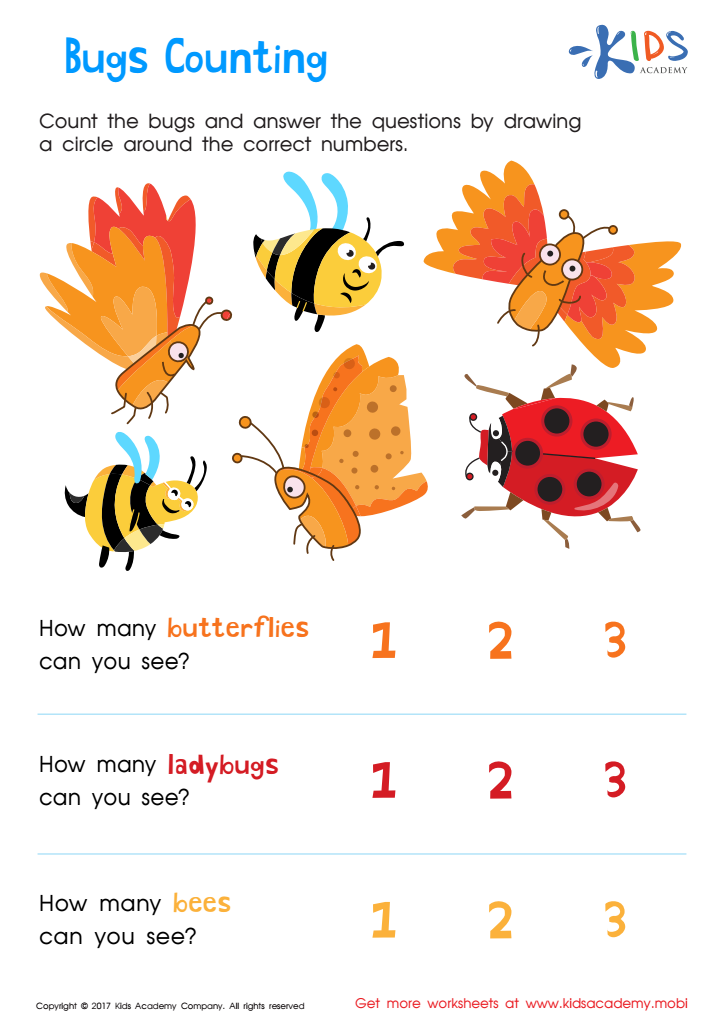

Bugs Counting Worksheet
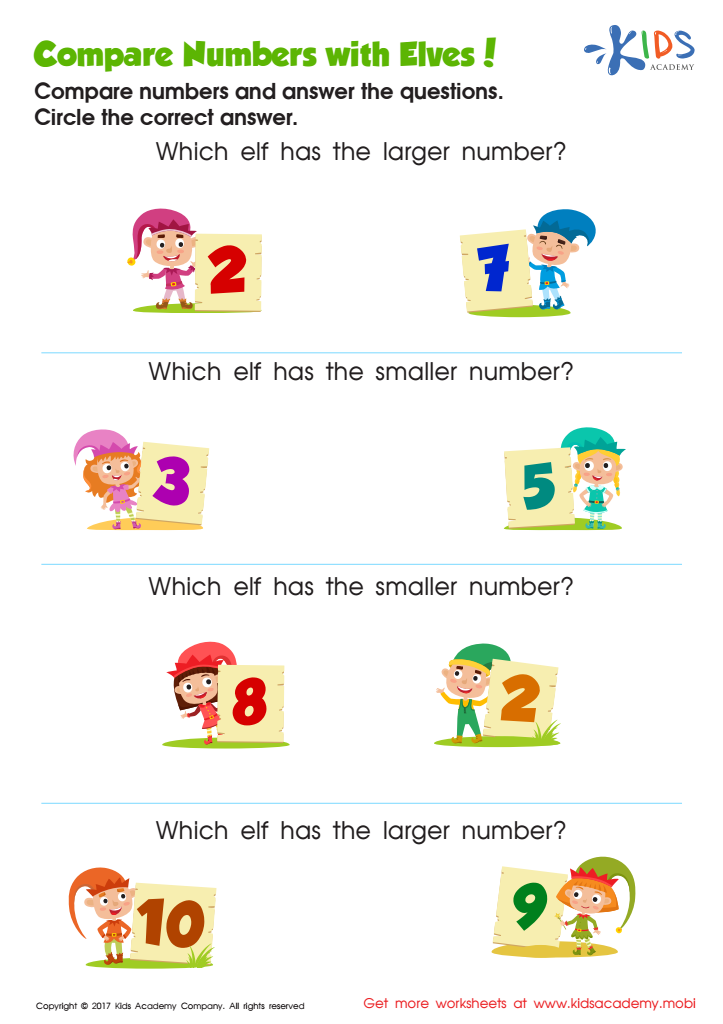

Comparing Numbers Worksheet for Kindergarten
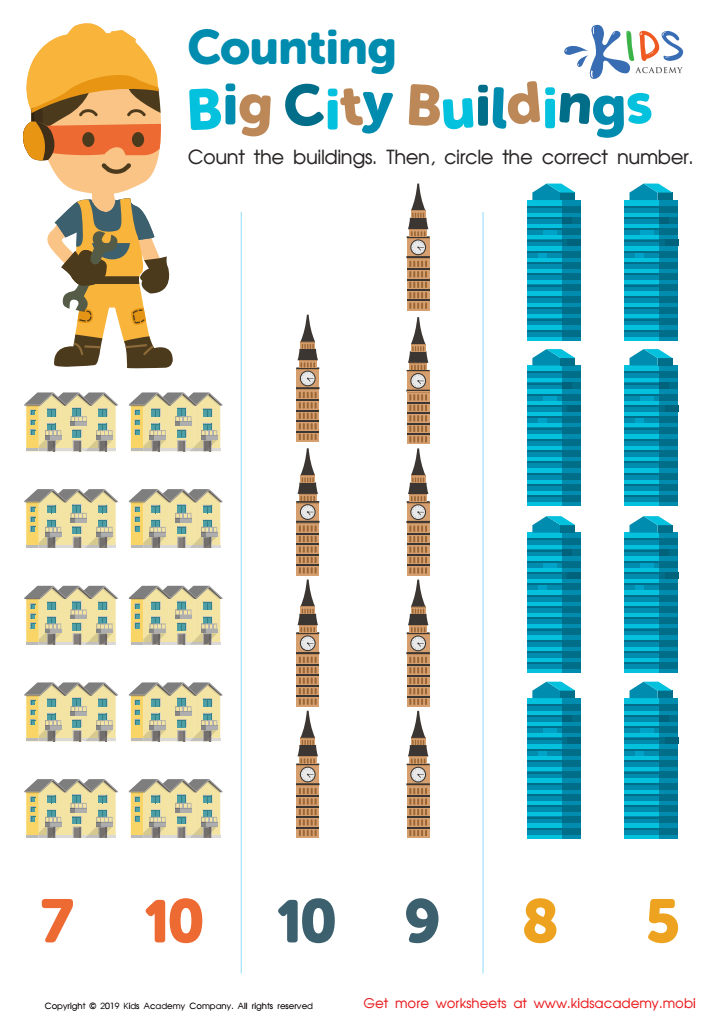

Counting Big City Buildings Worksheet
Understanding quantities and numbers is foundational for children aged 3-8, making it vital for both parents and teachers to prioritize this area of learning. At this early stage, children's cognitive development is rapid, and their grasp of mathematical concepts will impact their future academic success. Comprehending quantities helps children make sense of their world—whether counting toys, sharing snacks, or comparing sizes. It lays the groundwork for basic arithmetic and critical thinking skills, which are crucial for solving everyday problems.
Additionally, a solid understanding of numbers boosts children's confidence and promotes a positive attitude toward math, reducing anxiety and fostering a lifelong love of learning. Engaging in activities that involve counting, measuring, and comparing helps children develop essential skills such as problem-solving and logical reasoning.
Furthermore, early math skills are closely linked to literacy development, as patterns in numbers can enhance reading skills. Parents and teachers can support this learning through interactive games, guided play, and meaningful conversations about numbers in real-world contexts, stimulating children's curiosity and engagement. By investing time and resources in this foundational area, parents and teachers set children on a path toward academic resilience and success in mathematics and beyond.
 Assign to My Students
Assign to My Students


















